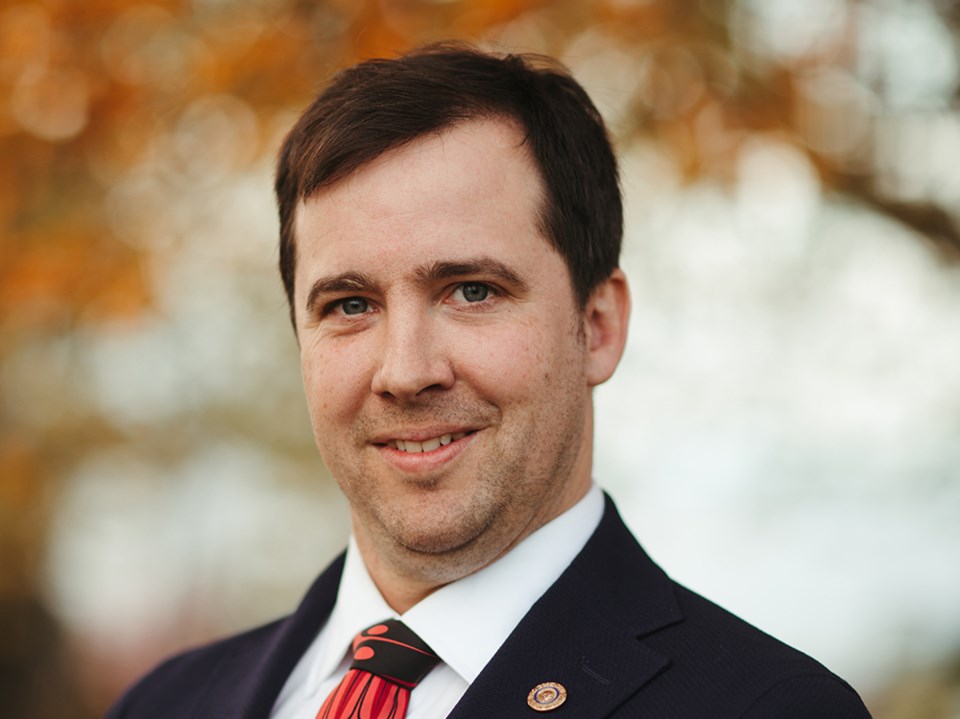While qathet Regional District (qRD) directors were scheduled to adopt the 2025 to 2029 five-year financial plan in February, the adoption will be held off until March so directors can review more information.
At the February 12 finance committee meeting, general manager of financial administration Linda Greenan provided an overview of draft three of the 2025 to 2029 five-year financial plan, outlining taxation for taxpayers in City of Powell River, the five electoral areas, and on Savary Island.
In the city, in draft three of the budget, the proposed tax increase for 2025 is 10.73 per cent, in Electoral Area A, 16.20 per cent, on Savary Island, 16.72 per cent, Electoral Area B, 24.42 per cent, Electoral Area C, 23.50 per cent, Electoral Area D (Texada Island), 14.67 per cent, and Electoral Area E (Lasqueti Island), 14.44 per cent.
Cost of qRD taxation per average home, in the city, is $543.58, in Area A, $1,727.53, on Savary Island, 999.82, Area B, $1,467.01, Area C, $1,629.18, Area D, $932.50, and in Area E, $1,793.
Tax rates between draft three and draft two have decreased. According to Greenan, the decrease in the city tax rate is because staff made some reductions to regional services budgets, and because in draft three the regional district is calculating the tax rates using the 2025 BC Assessment completed roll values, which are greater than those of 2024. In the electoral areas, the decrease in tax rate is also due to the increase in BC Assessment roll values in 2025 over 2024.
Electoral Area D director Sandy McCormick said her understanding was that the qRD operating budget for 2025 is $17.1 million and the capital budget is $6.9 million. Greenan said the operating budget is $17.1 million and the capital budget is $6.8 million.
Community works funds were discussed. Electoral Area B director Mark Gisborne mentioned the proposed use of community works funds being used for payment of the remaining debt on the resource recovery centre, split with the city. The city recently passed a motion not to allocate its community works funds to complete the project. Gisborne said community works funds could then be used for fire department apparatus and fire halls.
“It may not be the right time but we should take the community works funds that have been allocated to the resource recovery centre and bring that back into the community works fund reserve, take full borrowing for the $2.5 million that is required to complete the resource recovery centre project, and then we will have the community works funds available for things like fire halls and fire department apparatus,” said Gisborne. “It would decrease the amount of pressure needed to fill the fire hall reserves.”
Gisborne then mentioned the regional planning service. He said there was a 35 per cent increase in requisition, and he wondered why there was such a large increase in the planning service. He also pointed out there was a 28 per cent increase for salary and wages.
“I’ve been really struggling with the exponential growth of requisition we have been seeing in a number of services,” said Gisborne. “I’m wondering about the long-term sustainability of our community. General administration, 10 years ago, was under $500,000 and now we’re at $2.5 million, I think. Our general administration has surpassed the Sunshine Coast Regional District’s.
“I’m seeing a lot of for sale signs in my area and a lot of folks can’t afford to live in the community anymore. I’m wondering if this is the norm, and how can we, as a board, change direction?”
Electoral Area C director and acting committee chair Clay Brander said it was a big question and not one that could be resolved at this finance committee meeting.
“The cost of operating local government has just gone up,” said Brander. “Expenditures and budgets come through this board, so it’s a matter of cutting services, and I don’t know who is going to put forward those cuts, but it can always be proposed. I have full confidence that our staff is managing the money efficiently and responsibly. It’s a matter of what the community needs and what is being downloaded on us from the province. These are, unfortunately, the costs of doing business.”
Gisborne said the regional district didn’t have to have the budget submitted until the end of March. It was on the regional district calendar to pass the budget by the end of February, however.
“I would be very keen to ask for one more draft for March to go through all the items that are wants and the items that are needs,” said Gisborne. “There’s a number of things here we can cut back. The staff have been doing what they have been directed to do and my request is for the board to say, can we keep doing this?”
Electoral Area A director Jason Lennox said as budgets unfold every year, he is not prepared to endorse a 16.2 increase and 35 per cent administration increases every year.
“It’s totally unsustainable,” said Lennox. “It’s not our staff’s fault. It’s the work that we have to do and the work that we want to do. Next year, there are going to be some tough decisions because we can’t keep doing this.”
Gisborne proposed a motion that the financial plan be sent to the March finance committee, rather than being adopted at the February 26 board meeting. Gisborne said he wanted to see a final draft of the budget at the March finance committee meeting.
The motion carried unanimously.
Join the Peak's email list for the top headlines right in your inbox Monday to Friday.



